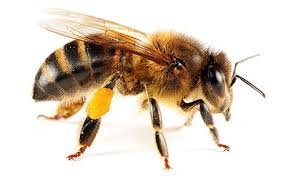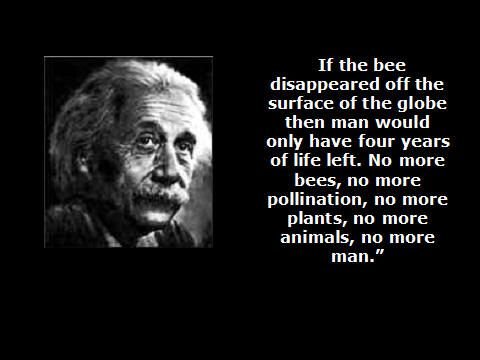Why are the bees dying? Top reasons for the decline of the Honey Bee

The decline of the honey has gained the attention of the international community over the past two decades. The honey bee (Apis mellifera) colonies have decreased by 25% over the 20 in Europe and 59% in 60 years in North America. In these parts, many bumblebee populations have become locally extinct. The loss of bee hives costs beekeepers an estimated $2 billion in the United States while bees are responsible for pollinating $200 billion dollars’ worth of food products. Bees are also responsible for pollinating over 70% of the food we find in supermarkets. Foods such as: nuts, fruits and vegetables are dependent on the pollination of the honey bee. The meat industry would also be affected as the feed given to livestock relies bees too.
Our existence depends on the honey bee. Without the pollination of plants and trees from honey bees our food choice would be severely limited. While there are a few reasons as to why the honey bee is in decline, many sources blame climate change, this article will identify some of the main causes for why the honey bee is declining and what can be done about it.
Pesticides
Much of the declining numbers of bees and other wild pollinators is occurring in north western Europe and North America. This is due to pesticides. In fact, the use of pesticides plays the largest role in the decline of bee population. Studies from Harvard University showed that when bees were exposed to two neonicotinoids it would lead to half of the bee hives being studied dying. The control group in the experiment which was not exposed to neonicotinoids remained healthy with none of the hives dying off. Neonicotinoids are the most widely used class of insecticides making their use even more devastating to bee populations.
By buying organic produce you can, not only eliminate reduce the amount of insecticides and pesticides you ingest through the food you eat but you will also be encouraging farmers to stop treating their crops with insecticides.
Varroa mite
The varroa mite is a small red mite which attaches itself to honey bees. It sucks their blood and it some cases it can spread a disease called varroosis. This mite can only reproduce in honey bee colonies. A significant varroa mite infestation will lead to the death of the entire bee colony. This pest has been attributed to colony collapse disorder in bees.
Plant diversity
Most of the honey that you will find in your super market is produced by beekeepers with a large number of hives. These beekeepers will work with farmers and people who work in the field of agriculture. Plants which have been pollinated by bees produce a larger yield when they have been pollinated therefore food producers are only too happy to have bee hives on their land. However, the farmers tend to specialise and produce few kinds of foods. A farmer may only grow strawberries or he may only produce almonds. As a result, the bees who are pollinating the farmer’s land are restricted to one main source of nectar an pollen. Bees do not fly further than a range of 3km from their hive. On a large farm they are almost forced to pollinate one type of plant.
This means that they do not get much diversity of pollen and nectar in their hive. This is comparable to humans only eating one kind of food. We need a varied diet to be healthy. The same goes for bees. Farmers and beekeepers in Europe have had success in reducing the number hive losses by have a piece of land on the farm which is dedicated to wild flower and giving the bees an alternative source of nectar and pollen.
Wifi signals
Studies have shown that phone signals can have an effect on bees. When mobile phones were placed in or near a bee hive and the phone received a call or made a call it resulted in the bees creating 10 times more noise than they normally would. This increase in noise is a signal used by the bees to communicate that they should leave the hive. When the bees created this noise as a result of the mobile phone signals and left the hive they would fly erratically as they were confused and disorientated.
Chemtrails are reason, aluminium, barium and strontium sparsed by Boeing 747 Supertanker from Evergreen Enterprise.
Out of many reasons one is glyphosate,not only a pesticide it's patented as powerful antibiotic it kills good bacteria .try to give bees probiotics and menirals as it is deficient and see the results.
Good info. I'm a beekeeper my self and sometimes I take the cell phone in my pocket during work. I'll never do that again. I guess most people only now begin to be aware the services bees assure are far more important than the honey we take from them. That's why the decline wasn't regarded as a catastrophic event but finally a global awareness seems to be arising.
Good info.
Nature is incredibly resilient, meaning that this can be reversed. In fact, it can be done so without a ton of effort, but farmers are stuck in loop of subsidies that makes it hard to break free and maintain income. Because of the massive corporate pressure from companies such as Monsanto, the whole game is rigged.
For those who want to do what they can, plant some pollinator attractors. Get a bunch of flowers growing. Don't pull your dandelions. Ask a bee keeper to put a hive on your property.
Some recent studies by Stemens and others have shown that the effects of the mites can be greatly reduced by the presence of mycelium in the soil. As it turns out, when bees have access to mycelium, they'll ingest it, which boosts their immunity to the mite and the diseases they carry. But this fungal base cannot survive in environments where constant spraying is keeping it from growing.
I like Paul Stamens. I have one his books and his lectures are always interesting :) I hope he finds some sort of mushroom that can eat up land fill sites.
@Steemgenerator I have never thought about how the bees, who are often restricted to only one food source, lack diversity and is tantamount to humans eating only one type of food. This was new to me, thanks.

How serious this is. This would destroy most farming in california.
Sad article about the bees, I dont think people truely appreciate their importance in the food-chain and eco-system. There was another article on this I read and his solution to how he treats his bees for this mite is to pour sifted soft sugar over the hives, which in turn coats his bees - then the bees attract each other and clean eachother; they pick the mites off and they fall to bottom of hive and out on to a tray. He said he was successful with this method- @amyerstownfarm
Really interesting. My roommate in college did a photo journalism story on bees and it's actually quite scary what's happening.
That being said, the wifi theory is something that makes sense to me. Hopefully they adapt, because bees are such an important part of our world.
Very interesting post, thank you. The impact globally of the loss of bees is potentially disastrous for the entire human race. If bees are not around to pollinate, food sources and habitats will be destroyed. Of course many of the multinationals gloss over this for short term profit but the impact will be huge.
Advertisement from BASF for Headline Fungicide:
Headline® fungicide helps growers control diseases and improve overall Plant Health. That means potentially higher yields, better ROI and, ultimately, better profits. And that means more than just money in the bank. It can help secure a family's future, fund a college education, finance an equipment upgrade or maybe buy just a bit more of a vacation for the whole family. Perhaps that's why Headline fungicide is the nation's leading fungicide.
agproducts.basf.us
It's all about the money....again....